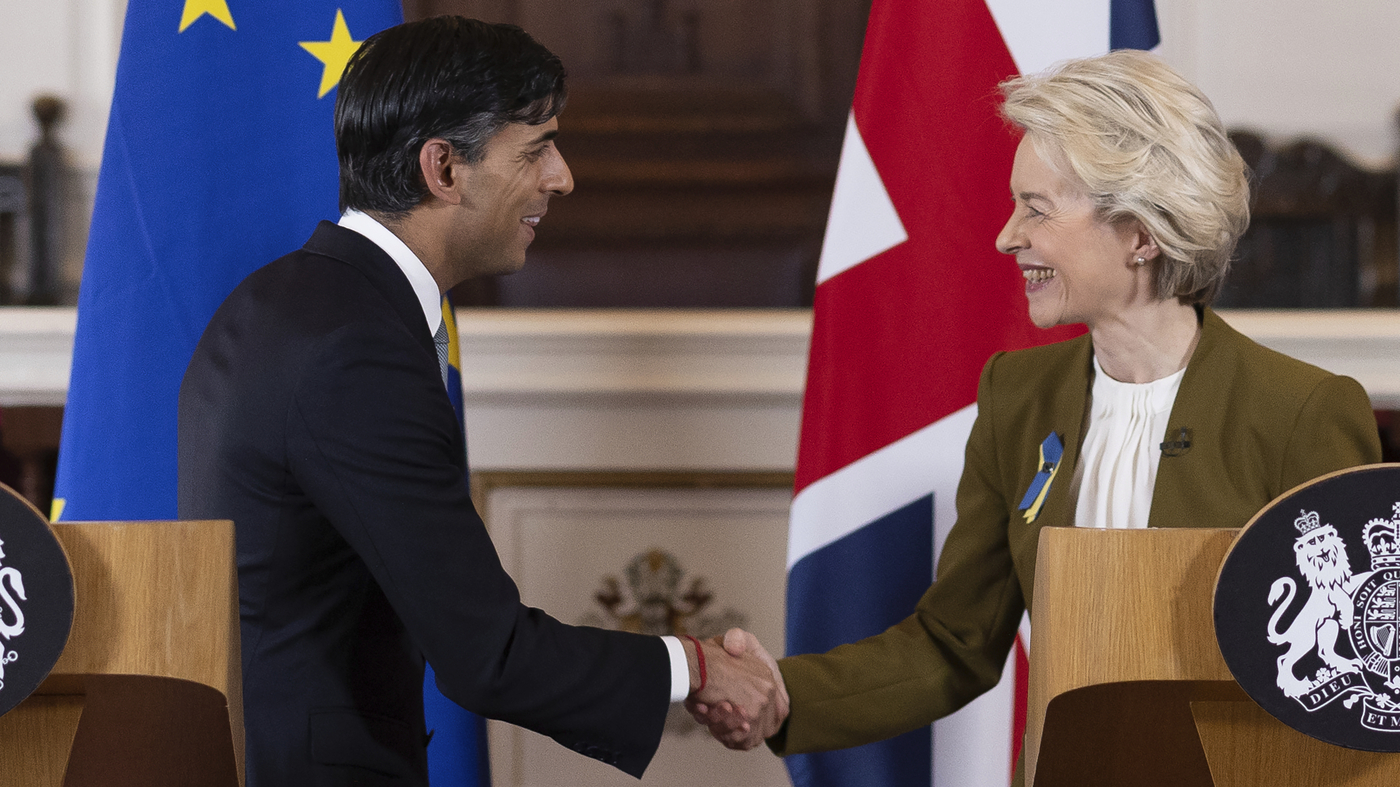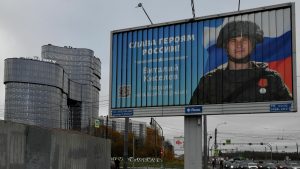
The EU and UK reached a new deal over trade in Northern Ireland
Northern Ireland’s status after Britain left the EU: From a Unionist’s perspective to the Conservative Party’s frustrations with Brexit
The United Kingdom and the European Union signed an agreement that will hopefully resolve the long-term issue of trading with Northern Ireland after Britain leaves the EU.
The President of the European Commission arrived in the UK Monday for final talks with the British Prime Minister. Von der Leyen will also meet with King Charles III for tea at Windsor Castle, Buckingham Palace confirmed.
Leaders were trying to avoid creating a hard border between Northern Ireland, which was leaving the EU, and neighboring EU-member state Ireland. But their solution also created a fresh set of challenges.
But it was criticized by some prominent unionist figures.”I Arlene Foster said that she couldn’t believe that No 10 would want the King to be involved in the finalising of a deal. It will go down very badly in NI.
Ordinarily, the existence of a border between an EU member state and a non-EU nation like the UK would require infrastructure such as customs posts. During the Troubles, security posts on the border in Northern Ireland and the Republic of Ireland became targets for groups that wanted to break up the country.
The pro-British unionist community in Northern Ireland believed that they were being cut off from the rest of the UK. There are disagreements about the arrangements that have been a barrier to the restoration of the Northern Ireland Assembly. The peace deal that ended the Troubles was a key part of the Good Friday Agreement and shared power between unionists and republicans.
British Prime Minister Rishi Sunak reached a deal with European Commission President Ursula von der Leyen on Monday that will allow goods to enter Northern Ireland freely from other parts of the U.K.
The EU granted Northern Ireland a unique status, meaning that goods produced elsewhere in the UK would need to be inspected before they could enter.
People in Northern Ireland wanted to remain part of the U.K. One of the main political parties there, the Democratic Unionist Party (DUP), has consequently refused to participate in local government ever since. It has helped reignite some tensions between different communities.
At the same time, some members of the Conservative Party also resented the idea that even after Brexit — with its slogan to “take back control” of Britain — EU bureaucrats would continue to have the power to intervene in trade flows within the United Kingdom.
Northern Ireland’s power sharing with the EU reappeared after Keir Starmer pulled out of the Northern Ireland power sharing agreement
The new plan involves the introduction of red and green lanes for goods arriving in Northern Ireland from other parts of the U.K.: green for British products, including medication, that are staying in Northern Ireland; red for those goods and products that will be sold on to the Republic of Ireland, thus entering the EU.
Sunak thinks the plan will be voted on in the U.K. Parliament. Lawmakers opposed to the previous deal want more time to study the new details.
The Labour Party leader Keir Starmer said he would support the new deal which would boost Britain’s international standing and hopefully end the country’s endless disputes with its neighbors.
Sunak has promised that the local legislature in Northern Ireland will be able to break with European Union laws in a way that was difficult under the previous deal.
The DUP has, over the past two years, refused to take part in the power sharing agreement in Northern Ireland, essentially grinding local governance to a halt, and thus potentiality endangering the 1998 Northern Ireland peace agreement.
Sunak will be hoping this breaks the gridlock and calms some of the tensions that the entire Brexit process has reawakened in the region — only last week gunmen tried to kill a senior police officer in Northern Ireland.

